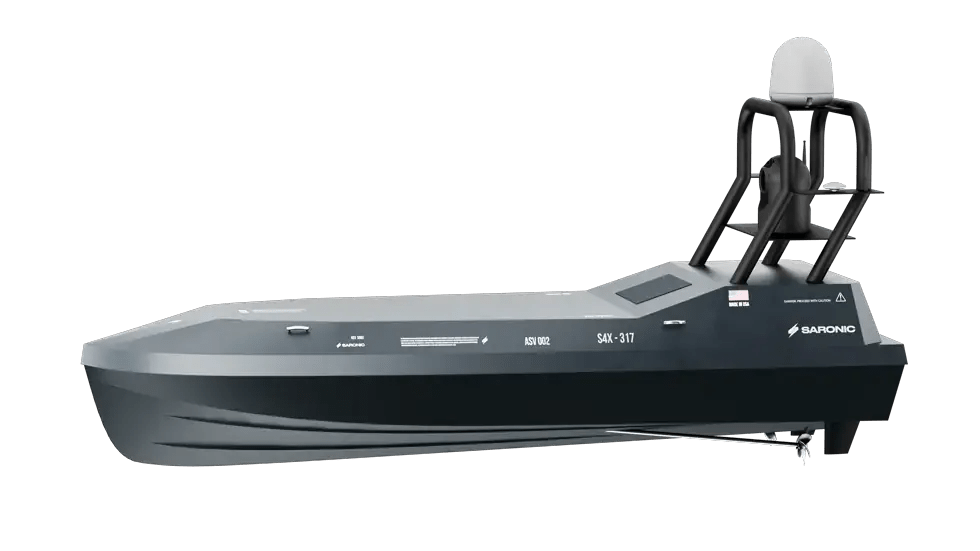Saronic, a startup developing autonomous ships for defense, has raised $55 million in a Series A round led by Caffeinated Capital with participation from 8VC, Andreessen Horowitz, Lightspeed Venture Partners, Point72 Ventures, Silent Ventures, Overmatch Ventures, Ensemble VC, Cubit Capital and the U.S. Innovative Technology Fund.
Saronic CEO Dino Mavrookas, a former Navy SEAL, launched the company last year with the goal of building autonomous surface ships for the Navy and U.S.-aligned defense customers.
Autonomous seagoing vessels is a growing field, albeit one not necessarily focused on defense. Saildrone, which this spring took the wraps off its autonomous vessel for research, has raised well over $100 million in venture capital. Meanwhile, startups like Shone, backed by Y Combinator, are creating tech to retrofit existing ships with autonomous navigation capabilities.
Saronic builds autonomous boats from the ground up, Mavrookas says.
“We build our boats around the mission, not the mission around the boat,” he told TechCrunch in an email interview. “Saronic fills a gap where shipbuilders, traditionally focused on manufacturing large naval ships, lack the capacity and expertise [for autonomous ship design], while other vendors provide legacy platforms and struggle with production at scale.”
The company is currently prototyping two ships, the six-foot Spyglass and 13-foot Cutlass, each outfitted with remotely updatable software and capable of carrying “diverse” payloads even in communication dead zones. Evidently, the Navy was impressed with these; Mavrookas claims that Saronic already has two R&D agreements with the maritime service branch.
My colleague Anna Heim recently wrote about how VC firms are opening the floodgates for defense tech. Historically, defense tech hasn’t drawn in the venture capital associated with other industries. But that started to change last year, when U.S.-based defense tech startups raised a total of $2.1 billion across 53 total deals, which includes defense firm Anduril’s $1.5 billion Series E.
Momentum isn’t slowing down. In the last few months, Helsing, a “defense AI” startup backed by Spotify founder Daniel Ek, broke a record for European AI startups, raising a $223 million Series B. Castelion, which aims to mass-produce defense hardware starting with hypersonics, secured a $14.2 million initial funding round. And defense startup Mach Industries landed $79 million at a $335 million valuation.

One of Saronic’s autonomous ships. Image Credits: Saronic
There’s a number of geopolitical factors contributing to the boom, the ongoing war in Ukraine being one of them. Certain startup segments in China have become less attractive than they once were, given newly imposed export controls and rules restricting U.S.-based investors from backing critical tech. And the U.S. government and its allies — through laws like the CHIPS and Science Act and funds such as NATO’s $1 billion startup tranche — are actively promoting investments in semiconductors and broader industrial development.
The climate is to Saronic’s benefit. But, Mavrookas asserts, the startup’s also competing on its own merits.
“Saronic is unlike any other company in the maritime autonomy arena — our competitors are predominantly boat builders trying to be technology companies,” Mavrookas said. “Autonomy at sea has unique challenges. Constants for space, land, and air autonomy; like fixed positions and constant distances, aren’t reliable on the ever-shifting surface of the ocean . . . Saronic is a technology company delivering capabilities through autonomous boats.”
Saronic, which is based in Austin, Texas, has raised around $70 million in venture capital to date and has roughly 45 employees.
